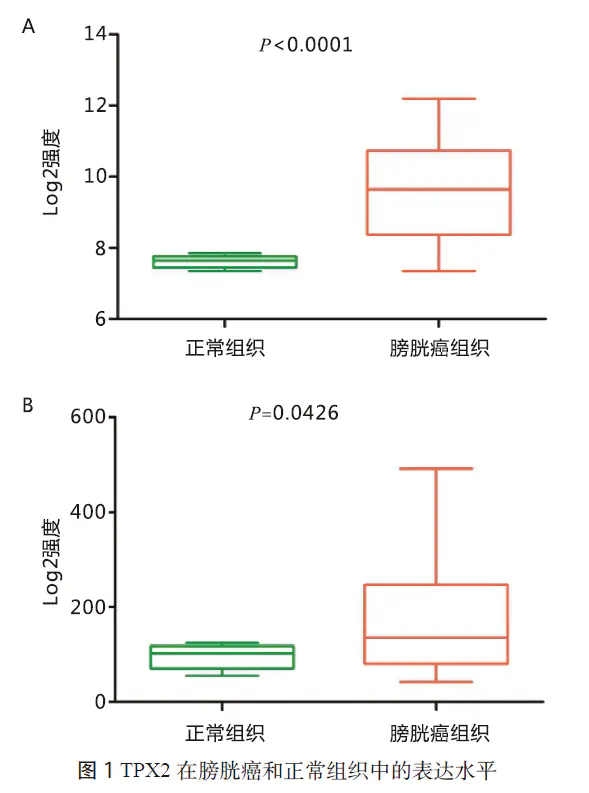Expression of targeting protein for TPX2 in bladder cancer and its clinical significance
 The Levels of TPX2 in Bladder Cancer and Normal Tissues
The Levels of TPX2 in Bladder Cancer and Normal TissuesAbstract
Objective: To clarify the connection between TPX2 expression and clinicopathological characteristics of bladder
cancer, so as to evaluate the function of TPX2 as a prognosis marker in bladder cancer.
Methods: GEO datasets were collected
and expression profile and clinical information were analyzed. GSEA was conducted to explore the gene sets enriched in TPX2
high-expression samples.
Results: The expression of TPX2 was up-regulated in bladder cancer (P<0.0001); TPX2 expression was
significantly associated with age, sex, T stage, N stage, progression, grade. Higher expression of TPX2 indicated poor prognosis in
bladder cancer. GSEA indicated that TPX2 regulates gene sets associated with spermatogenesis,unfolded protein response, PI3K/
AKT/mTOR signaling, mTORC1 signaling, cholesterol homeostasis, mitotic spindle, glycolysis, G2M checkpoint, E2Ftargets,
myctargets.
Conclusion: TPX2 is highly expressed in multiple tumors and functions as potential marker and target in diagnosis and
treatment in bladder cancer.